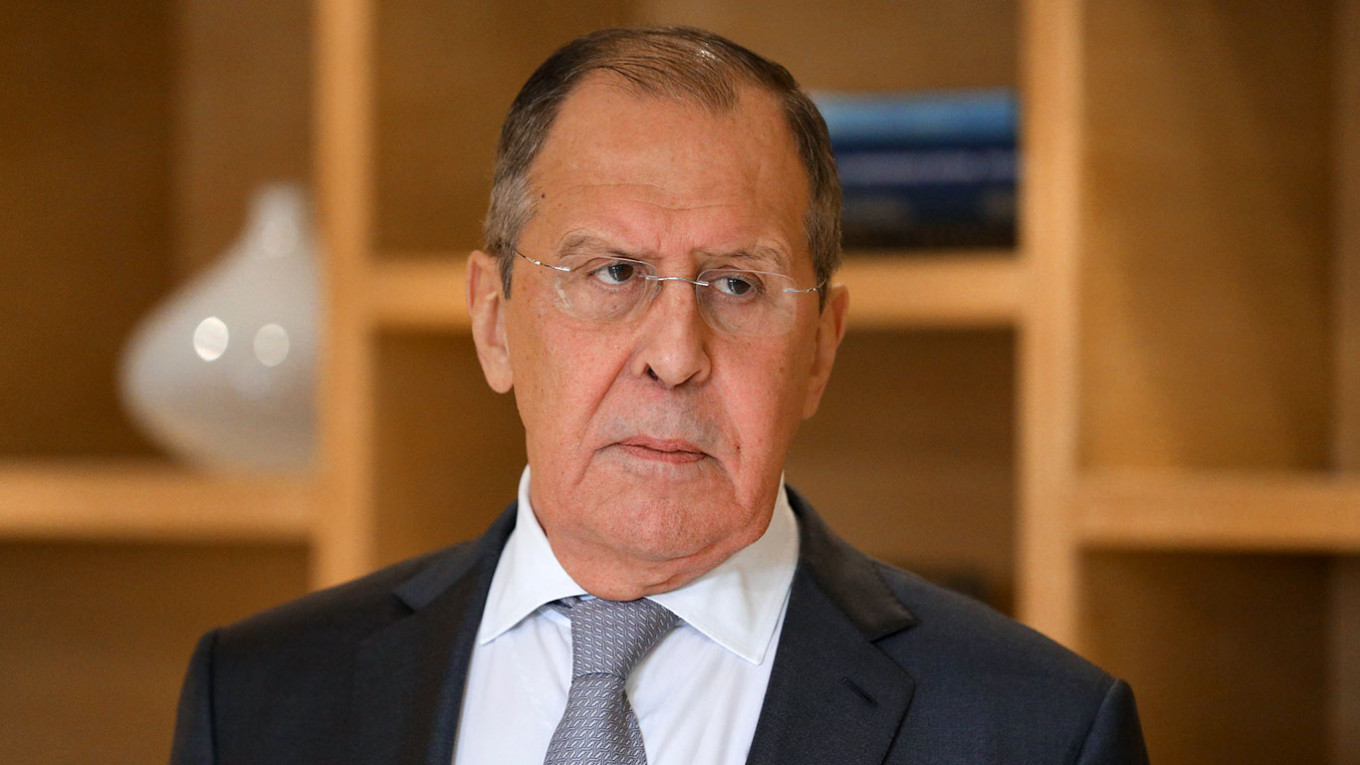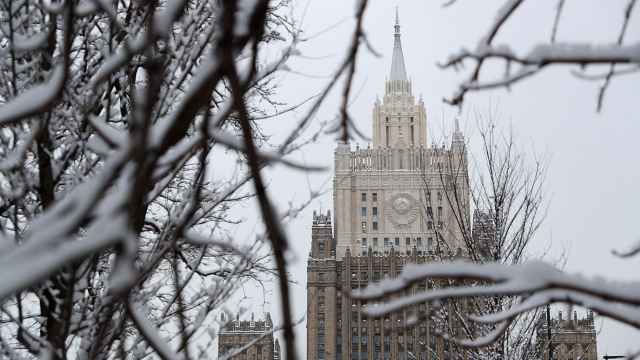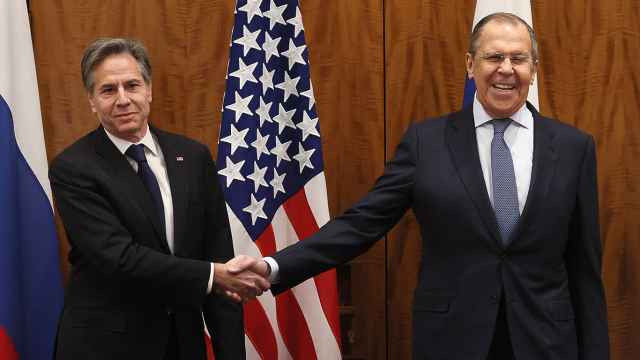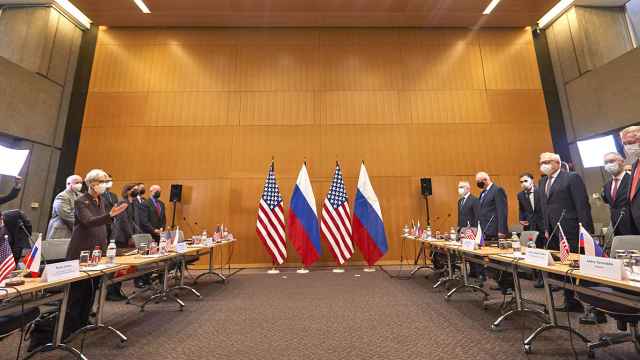As a week of high-profile talks between Russia and the West ended in failure to resolve soaring tensions over Ukraine and NATO expansion, experts told The Moscow Times that stalemate had always been the probable outcome.
“The result was more or less predictable, given that the West was not going to agree to Moscow’s demands,” said Andrei Kortunov, head of the Russian International Affairs Council (RIAC), a Kremlin-linked think tank.
“Now we’ll wait to see how Russia reacts.”
At a Moscow press conference on Friday, Russian Foreign Minister Sergei Lavrov signaled displeasure with the way the talks had ended, and suggested that the on-and-off negotiations begun in Geneva in the summer had ended.
“We’re very patient, but our patience has run out,” he said.
It was a point echoed by other Russian officials, including his deputy Sergei Ryabkov and President Vladimir Putin’s spokesman Dmitry Peskov, who told journalists no further talks with the U.S. were in the pipeline.
No one had expected the talks to deliver any major breakthroughs.
Russia’s ambitious set of demands, including a guarantee that post-Soviet Ukraine and Georgia would never be admitted to NATO, and radical restrictions on the alliance’s activity in Eastern Europe, a failure to come to terms was always likely.
Meanwhile, a months-long military buildup on Russia’s border with Ukraine has raised hackles in Europe and America amid fears of a repeat of Moscow’s 2014 seizure of Crimea and military operations in the Donbas.
For its part, Russia has been clear that it views NATO as ultimately subordinate to Washington, and bet on direct negotiations with the U.S. to deliver results.
But although talks with U.S. President Joe Biden in Switzerland in the summer and over video link in December were outwardly cordial, little was achieved.
While this week’s talks with NATO and the Organization for Security and Cooperation in Europe (OSCE) had been viewed as a last chance for compromise, no such solution appeared forthcoming on Friday.
During the course of the week, critical remarks on Russia’s intervention in unrest in Kazakhstan from U.S. Secretary of State Anthony Blinken attracted much negative attention from Russian state media, being presented as evidence of a lack of goodwill from Washington.
For Mark Galeotti, a senior associate fellow at the Royal United Services Institute (RUSI), a U.K. foreign affairs think tank, the Western side’s efforts to steer the talks towards concrete, deliverable issues, including missile launch sites and troop deployments may have contributed to the breakdown of talks.
He suggested that as Russia was demanding nothing less than a radical overhaul of Europe’s security arrangements, the discussion of piecemeal issues was not enough.
“The Russians were looking for excuses to continue to talk,” said Galeotti.
“And the Americans didn’t do enough to give them those excuses.”
“Military-technical solution”
With the latest round of talks concluded, there is some disagreement about whether Putin's December threat of a “military-technical solution” to the Ukraine crisis is probable or even inevitable.
For Tatiana Stanovaya, founder of political consultancy R.Politik, the failure of a lengthy series of talks to deliver a solution to the Ukraine crisis means that a return to conflict in the region is now more likely than ever.
“The risk of war is real,” said Stanovaya. “And it grows every time negotiations fail.”
However, other observers stressed the unpredictability and grand-standing inherent in high-level diplomacy, and said they envision the two sides returning to the negotiating table before long.
“These talks aren’t over,” said RUSI’s Galeotti, who expects fresh rounds of U.S.-Russia talks to be convened in the near future.
“We’ve come to imagine that diplomacy is as simple as binge-watching Netflix. But now we’re back in the age where you have to watch an episode every week.”
A Message from The Moscow Times:
Dear readers,
We are facing unprecedented challenges. Russia's Prosecutor General's Office has designated The Moscow Times as an "undesirable" organization, criminalizing our work and putting our staff at risk of prosecution. This follows our earlier unjust labeling as a "foreign agent."
These actions are direct attempts to silence independent journalism in Russia. The authorities claim our work "discredits the decisions of the Russian leadership." We see things differently: we strive to provide accurate, unbiased reporting on Russia.
We, the journalists of The Moscow Times, refuse to be silenced. But to continue our work, we need your help.
Your support, no matter how small, makes a world of difference. If you can, please support us monthly starting from just $2. It's quick to set up, and every contribution makes a significant impact.
By supporting The Moscow Times, you're defending open, independent journalism in the face of repression. Thank you for standing with us.
Remind me later.







